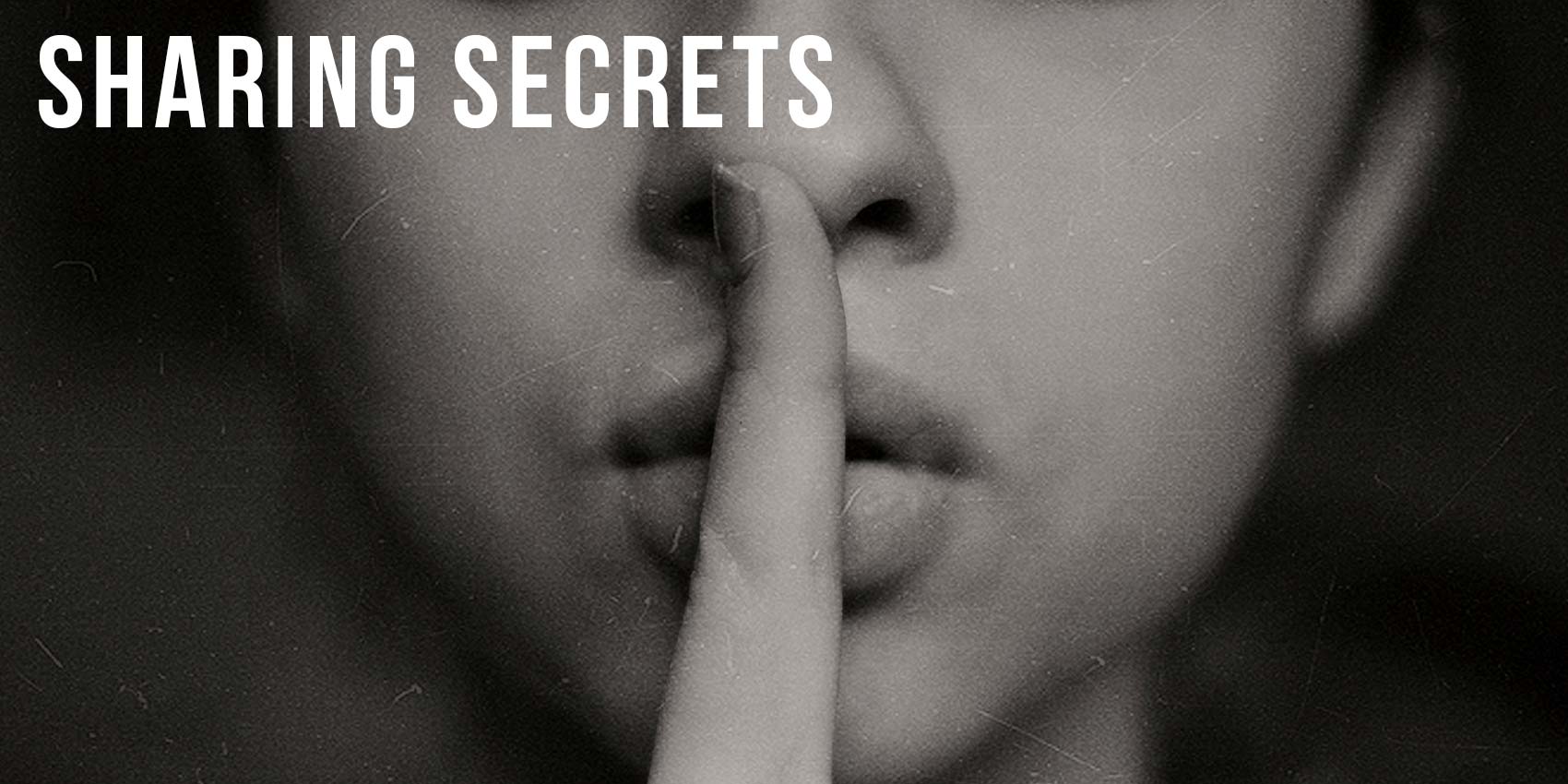03 Aug Sharing secrets

A big part of your own personal secrets is sharing them. Sounds almost like an oxymoron (meaning two opposites working at the same time) right? A secret is something you keep secret, right? Yes and no. You can have a secret that you don’t tell to anyone. Only you know the secret and that’s just the way you want it. But maybe you don’t want it that way. Maybe you want to share it with someone. Indeed, one major part of having a secret is also having the decision (and responsibility) to choose what to do with it: keep it quiet, share it, or even full on spill the beans.
Friendships are often founded on a shared knowledge of one another. Simply put: I tell you something about myself, and you tell me something in return. So when we share our secret with someone else, we are in essence, creating a special bond with that person. By offering our secret information, we are telling people that we trust them and that we are willing, perhaps even happy, to have a unique shared experience with them. In this way, secrets can cement the bonds of friendship.
The sharing of secrets is a part of a process called self-disclosure. By self-disclosing something personal (and often times secretive) with someone, you are most likely on the road to building a friendship or you are making an existing friendship stronger.
Self-Disclosure (Secrets) + Friends = Usually Good.
Why only “usually” good? Well, when you share something with someone you trust, you are likely to feel more bonded—a nice feeling. But sharing a secret with someone you’re not sure yet if you can trust, can make you feel uneasy. Moreover, if you share someone else’s secret with someone, you may end up feeling quite guilty because you will have broken someone’s trust.
Sharing Others’ Secrets — Permission = Usually Bad.
In general, when someone tells your secret without your permission, that person has violated your trust. The message the person is sending is “I did not respect you or your privacy or your feelings enough to keep the secret.” You are now informed that you made a large error in judgment in trusting that person.
Hence, not only are you dealing with the loss of trust in the other person, but you are also dealing with the loss of trust in your own decision to tell. When someone divulges your classified info, you can be left feeling out of control, betrayed, compromised and even bullied (See Bonus YSS: Girls + Secrets = Bullying?). This is why a solid look at how to handle secrets is so important—it can help you to safeguard yourself.
But why only “usually” bad then? (Remember the equation above: Sharing Others’ Secrets — Permission = Usually Bad.) ALL of that sounds bad. Well, that’s the subject of the next post….




Post Question:
Have you ever kept one of your secrets that you’ve wanted to share from friends that you’ve wanted to share? What stopped you from telling your friends?
Answer the post question here
What's being said